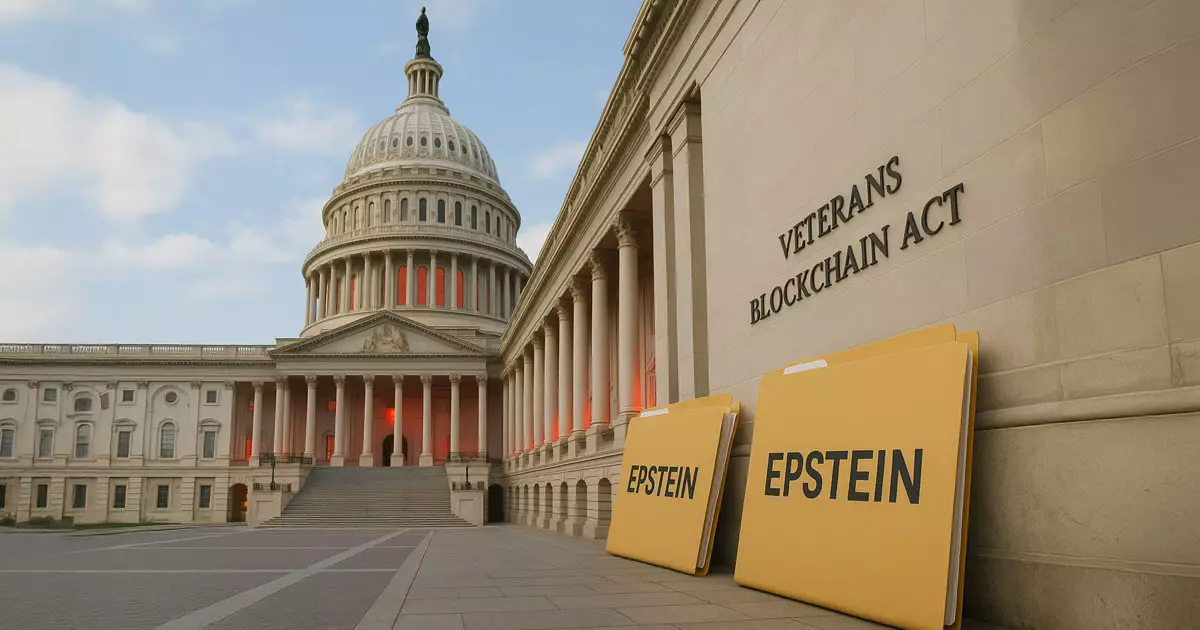The abrupt decision by the House of Representatives to conclude its session a week before schedule signals more than mere schedule management—it embodies a calculated setback to legislative momentum, especially on issues vital to economic innovation and national competitiveness. By halting proceedings until after Labor Day, lawmakers effectively pause critical debates and reforms that could shape the future of financial regulation and technological advancement in the United States. This premature recess reflects an underlying prioritization of political expediency over substantive progress, undermining the potential for timely policy responses in an era where economic agility is paramount.
The decision, driven by internal procedural disputes over sensitive amendments, particularly those pertaining to Jeffrey Epstein’s files, highlights a deeper issue: a reluctance within Congress to confront uncomfortable truths or push through contentious issues swiftly. While some may argue these delays are necessary to prevent hasty legislation, the reality is that such strategic stall tactics often serve to preserve political comfort rather than serve the national interest. An early recess, therefore, signifies a missed opportunity to address urgent economic reforms and technological policies that could bolster America’s global standing.
The Impact on Cryptocurrency and Financial Innovation
A significant concern stemming from this early adjournment is the delay in policies crucial to shaping the future of digital finance. Legislation such as the GENIUS Act, the CLARITY Act, and the Anti-CBDC Act—measures that collectively affirm a commitment to balanced regulation—have already cleared the Senate and earned the President’s signature. These bills outline foundational principles: protecting innovation, clarifying regulatory jurisdictions, and resisting overreach by central banks in digital currency issuance. Their swift passage underscores a bipartisan consensus that regulation should facilitate innovation rather than stifle it.
However, the unfinished work on other critical bills, like the Veterans Affairs Distributed Ledger Innovation Act, exemplifies how legislative delays risk halting innovative projects poised to improve government efficiency. Blockchain technology has the potential to revolutionize benefits management by increasing transparency and reducing fraud. Yet, without immediate legislative action, these promising initiatives risk languishing in procedural limbo. The delays threaten to diminish the United States’ competitiveness in a rapidly evolving global digital economy, where countries actively position themselves as innovation hubs. The extended recess may inadvertently signal a lack of urgency and commitment to maintaining leadership in fintech and blockchain applications.
Delay’s Broader Economic and Political Consequences
Beyond the immediate impact on specific bills, the early adjournment weakens Congress’s overall capacity to respond swiftly to emerging economic challenges or technological opportunities. The legislative process, inherently slow, relies on a steady rhythm of hearings, debates, and votes. Interruptions and early breaks diminish the ability of lawmakers to engage deeply with complex issues, such as digital asset taxation and central bank digital currencies (CBDCs). These issues are not academic—they will define the financial landscape of the coming decades.
Politically, the move exposes a tendency towards prioritizing procedural calculations over substantive policy development. While partisan disputes are inevitable, the choice to halt all activity in the face of pressing issues reflects a lack of strategic leadership. This approach risks imperiling the nation’s ability to adapt to the rapid pace of technological change and the economic shocks that can arise from regulatory vacuums or delays. Furthermore, it signals to the international community that America’s legislative process may be slow and reactive at best, potentially ceding ground to countries with more agile policymaking frameworks.
While tactical pauses might be justified at times, the early congressional recess appears to prioritize political comfort over the country’s economic and technological future. As the world races ahead in digital innovation, the United States cannot afford to fall behind due to procedural indecisiveness or political brinkmanship. The true cost of such delays is not just legislative inertia but a potential erosion of America’s competitive edge, economic resilience, and leadership in shaping the future of global finance.

